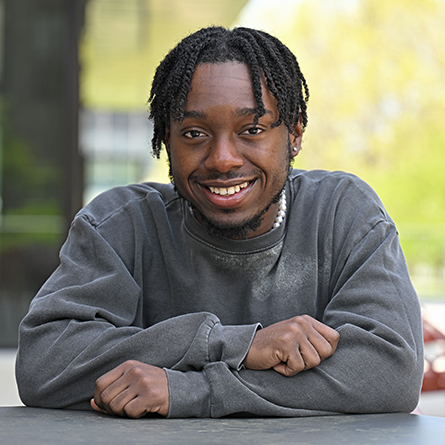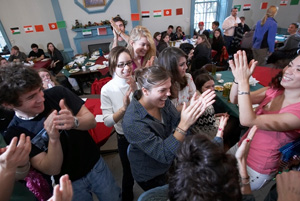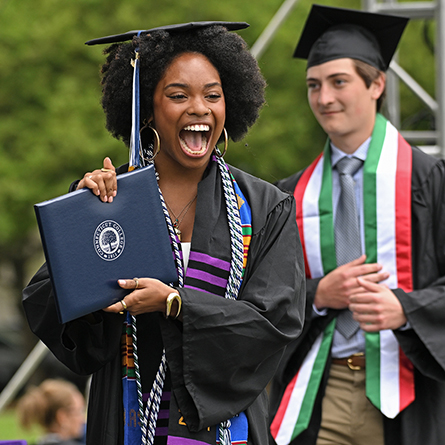
Arabic is the fifth most commonly spoken language worldwide

Arabic is the fifth most commonly spoken language worldwide, and now Connecticut College students have the opportunity to join the 300 million Arabic speakers.
Last fall, the College added an Arabic language program that offers an array of learning opportunities both inside and outside of the classroom.
Ching-Jen Wang, visiting professor of Arabic, teaches intensive beginner and intermediate Arabic.
"My goal is for my students to be able to communicate in Arabic on the basic level," Wang said. "I focus on building students' four language skills - reading, writing, speaking and listening."
Arabic Language Fellows Razan Khabour '10 and Katherine Shabb '12 are also helping to develop the program by promoting the use of Arabic. They were selected to be participants in the College's recently launched Foreign Language Fellows program, which provides leadership opportunities to 14 of the most advanced language students. The fellows work closely with the foreign language departments to coordinate academic and social programming to bring faculty members and students together in informal settings for additional language practice.
Khabour, a native of Jordan, and Shabb, a native of Lebanon, enhance the learning experience by teaching their peers outside of the traditional classroom setting. Native Arabic speakers lead weekly conversational practice sessions and host cultural events on campus.
Recently, Khabour and Shabb hosted a Middle Eastern lunch, where students enjoyed falafel and hummus, conversed in Arabic and listened to Arabic music in Knowlton, the international residential hall.
In addition to the lunch, the fellows recently organized a trip to the First Congregational Church of Old Lyme's Tree of Life Conference on Israel and Palestine. The purpose of the conference was to discuss the challenges posed by the Israeli-Palestinian conflict and how the U.S. should respond.
Khabour and Shabb are already planning new events for next semester, such as an Arabic night with a belly dancer, to give their peers the chance to further explore Arab culture.
Though Arabic is not currently offered as a major or a minor, several students are working on self-designed interdisciplinary majors that involve Arabic and other department courses, such as government's Middle East politics.
Students have also created Yalla Bina, a club to help develop the Arabic program, educate the College community on current issues in the Middle East and demystify stereotypes. The group meets every Tuesday in Race and Ethnicity Programs at Unity House at 9 p.m.
"As a club, we hope to help foster awareness and provide the Connecticut College community with resources to learn about both the culture and language without stereotypes," Wendy Ogando '13, president of Yalla Bina, said.
-Caroline Gransee '09
January 15, 2010
